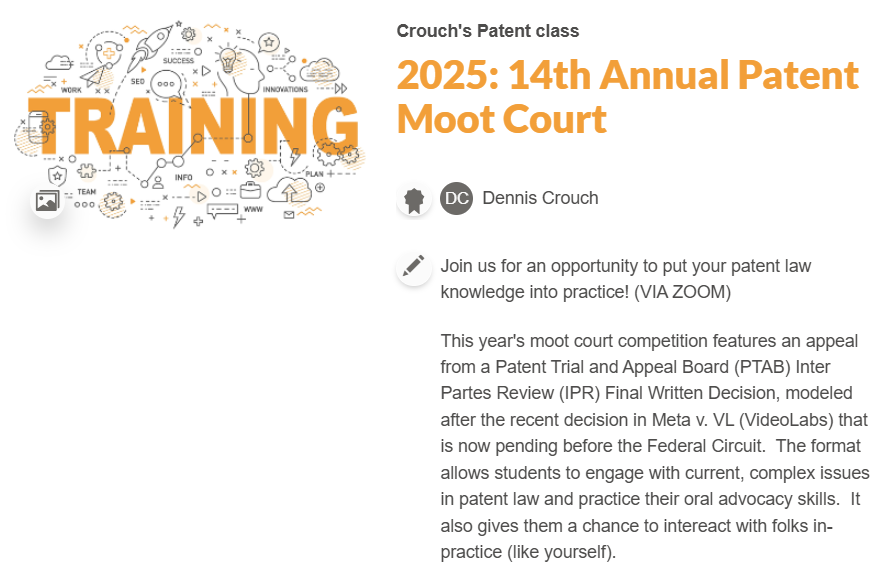Calling IP Attorneys — Come Judge our 14th Annual Patent Moot Court Competition taking place via Zoom on April 14th and 16th, 2025. This is a memorable capstone experience for the students but it requires your expertise.
This year’s group is larger than usual and that means I need more judges. No Presidential Appointment is necessary, but you do need a JD, IP law experience, and most importantly passion for supporting the next generation of attorneys. Connect with talented law students and other judges passionate about patent and IP law; Engage with complex, current issues in patent law; etc.
I have modeled the competition after a recent pair of PTAB final written decisions in Meta v. VL (VideoLabs), both of which include a dissenting opinion by Judge McKone. The appeals are currently pending before the Federal Circuit with both sides expected to file cross appeals.
I’ll provide a comprehensive judge’s brief and preparation meeting so that you don’t have to.
Multiple time slots available (evenings on April 14th and 16th)
Interested? Sign up here: https://lnkd.in/gZPG8Us9
Please share with colleagues who might be interested in contributing to legal education.
= = =
Here are the IPR Decisions that serve as the basis of the moot court.

I cannot resist also noting that while IPRs are generally much harder or stricter on patent owners patents than they were on their pending applications re patent and publication prior art, it is the opposite in IPRs this one respect. In application examinations the effective date of publications does not require such rigorous date of public availability evidence by the examiner, challenges have to be made by application owners, and the nearly contemporaneous to filing date publication date may even be used as evidence of 103 POSITA’s current knowledge in that art if the date is close enough. Even though IPRs are a PTO reexamination system.
Besides the inadequate evidence of references public availability dates argued by the PTAB dissenter in this IPR decision that is being used for a moot court, I noted that another and important reference was a thesis that was shown in the decision to have had evidence of a publicly availability date in an library. However, the IPR decision did not indicate if and when it was catalogued or indexed, so as to be findable in that library. Is that another potential issue?